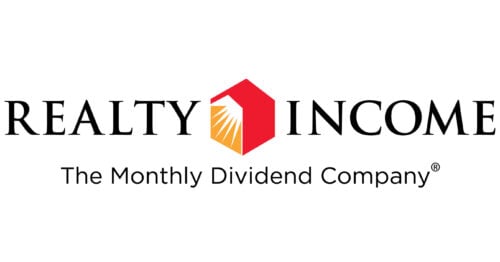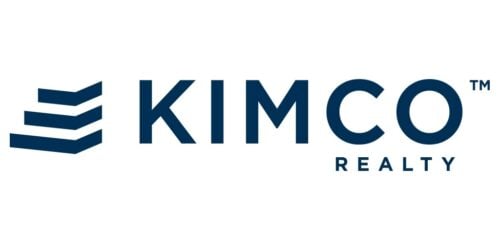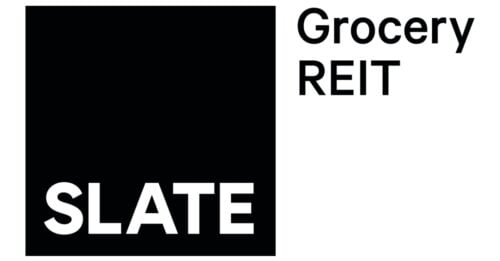Retail REITs are benefiting from a post-pandemic economic boom as people get out more and businesses reopen. As they are catching the attention of investors, many are wondering if now is a good time to buy. To find out, check out our watchlist of the best retail REITs to buy now.
Best Retail REITs
Realty Income Corp. (NYSE: O)
Realty Income is a well-established trust and one of the largest retail REITs available in the market.
O has a market cap of nearly $40 Billion, which is spread across 11,700 retail properties under long-term, net-lease agreements.
So far, the real estate investment trust has performed well, returning investors a compound annual total return of 14.4% since 1994. Since its inception, the REIT has declared over 629 dividends, which it pays monthly.

Investors can expect to receive a generous 4.7% annual dividend yield from Realty Income.
The real estate investment trust’s portfolio is highly diversified. The retail REIT invests primarily in retail sectors that are fairly well-equipped to storm a recession and the growth of eCommerce.
For example, the trust’s top five investment categories include:
- Grocery stores (10.3%)
- Convenience stores (9%)
- Dollar stores (7.7%)
- Fast food restaurants (6.4%)
- Drug stores (6.2%)
Realty Income just had a solid earnings report boasting revenues of $836.6m, up a jaw-dropping 71% from 3Q 2021. The increase is likely due to a boost in occupancy caused by the pandemic reopening.
But that’s not the only metric that has improved for Realty Income. Its funds from operations (FFO) are up 80% from last year. FFO is a significant REIT earnings metric as it provides clues about how safe its dividend is.
Related: The 5 Best Hotel REITs To Buy Now
REITs vs Real Estate: What You Need To Know
Phillips Edison & Company, Inc. (NASDAQ: PECO)
If your grocery store of choice is in the middle of a shopping center, then it’s likely located in a grocery-anchored shopping center.
PECO is one of the country’s largest owners and operators of grocery-anchored shopping centers.

It has a market cap of nearly $4 billion and pays investors a dividend of 3.68%.
This retail REIT has been on a roll over the past year, surpassing FFO consensus in the last four quarters.
It also posted better-than-expected revenues in Q3 of $145.65 million, beating last year’s revenues of $132.33 million.
National Retail Properties (NYSE: NNN)
National Retail Properties specializes in owning freestanding retail stores across the United States.
A freestanding store refers to retail property that is not located in a shopping mall or one that has its own premises and parking spaces.

Their portfolio boasts over 3,300 retail properties with a remarkable 99.4% occupancy rate. Its top tenants include companies like 7-Eleven, Mister Car Wash, and LA Fitness.
NNN is celebrating its 33rd consecutive annual dividend increase, paying investors an annual yield of 5%.
Stocks that have increased their dividends consecutively for more than 25 years are considered Dividend Aristocrats — a badge of honor for dividend stocks and a valued metric for dividend investors.
Aside from its attractive dividend yield, the stock also has an average annual return of 11.6% — not bad for a retail REIT.
The retail REITs revenue has been rising continuously over the past few years, following the national increase in rent prices.
Simon Property Group (NYSE: SPG)
Simon Property Group is one of the largest shopping mall REITs in the retail space.
The retail REIT has a market cap of $43 billion and controls over 190 million square feet of retail space.
SPG is so large that it’s part of the S&P 100, considered to be among America’s top 100 companies.
Simon Property Group’s portfolio boasts over 250 shopping mall properties worldwide, including:
- CityOn in China
- Sawgrass Mills in Florida
- The Shops at Crystal in Las Vegas.
The real estate investment trust is doing well and shares the wealth with investors by offering a 6.24% annual dividend yield.
Q3 earnings from SPG delivered growth that matches the performance of the sector. Simon Property generated an enormous revenue of $1.315 billion.
FFO came in at $2.97 per share, beating consensus and surpassing last year’s revenue by five cents per share.

Occupancy also saw a considerable increase over the last quarter. Numbers came in at 94.5%, up from 92.8% during the same period last year.
While occupancy has increased since the pandemic, shopping mall REITs are still facing challenges with the rise of eCommerce.
Slow growth from eCommerce should serve as a cautionary note for investors looking to add the real estate giant to their portfolios.
Simon Property Group is investing in ways to transform its projects to safeguard against the sector’s risks.
Ultimately, the group plans to diversify away from the retail industry into entertainment spaces or offices as padding for the rise of eCommerce.
KIMCO Realty Corp. (NYSE: KIM)
KIM is North America’s largest publicly traded owner and operator of open-air, grocery-anchored shopping centers.
Like PECO, Kimco’s investment strategy leverages grocery stores’ traffic as their shopping centers’ focal point.
The retail REIT has a growing portfolio of 536 properties with a market cap valuation of $13 billion.

Kimco Realty recently announced its Q3 earnings report. The real estate investment trust reported an FFO of $0.41 cents, which is $0.09 cents above last year’s report.
Revenue also beat expectations coming in at $433.4 million, while occupancy rates also came in high at 97.8%.
KIM provided increased forward guidance for Q4, as it expects business to grow. The FFO outlook range is between $1.57-$1.59, up from the current range of $1.54-$1.57.
The pandemic has seen demand for open-air shopping centers skyrocket as consumers choose to stay away from enclosed locations.
That said, open-air shopping centers are drawing in rents that are 46% higher than their enclosed counterparts.
KIM investors could expect to earn a 4.36% dividend yield.
Slate Retail REIT (OTCMKTS: SRRTF)
SRRTF focuses on grocery-anchored retail spaces, which comprise 93% of its assets.
The real estate investment trust places growth at the center of its investment strategy. After acquiring a property, the REIT focuses on maximizing growth by finding ways to increase rents, improve lease terms, and drive occupancy.
Its 121 retail properties are valued at $2.4 billion and offer one of the highest dividend yields in our list, paying investors 7.66% annually.
Slate’s latest earnings have investors raising their eyebrows. FFO came in at $17.6 million, up 29% from last year.

The REIT is in a particularly beneficial position regarding its debt. The latest earnings report shows that 89.7% of the REIT’s debt is subject to fixed interest rates. A considerable advantage to have at a time when the FED is hiking interest rates to cool inflation.
There is also good news for investors looking to gain more than dividends.
It’s possible that the REIT could see a stock price increase as they reported a below-average $12.17 in-place rent. A below-average in-place rental income leaves the REIT with space to increase rental income and generate more revenue.
It’s noteworthy to mention that SRRTF is currently trading in OTC markets. OTC stocks tend to be riskier as they have less liquidity, which causes more volatility, and they are vetted less rigorously.
Related: These Are The 9 Best High Yield REITs For Income To Buy Right Now!
SITE Centers Corp. (NYSE: SITC)
SITE wholly owns 103 retail shopping centers across the country, boasting a wide variety of established tenants.
This REIT owns and manages properties in major cities such as New York, San Antonio, and San Francisco.
Its top 50 tenants comprise 56% of its revenue, with names such as Krogers, Best Buy, and Kohls topping the list.

The REITs strategy is centered around sustainable growth, focusing only on wealthy neighborhoods with household incomes above $100k per year.
Grocery store REITs are considered to be one of the safest real estate investment trusts, as people always need to buy food.
SITE Centers is currently offering investors a dividend yield of 4.22%, and its market capitalization is estimated to be over $4 billion.
Q3 earnings have been reported recently, which beat FFO expectations. The REIT reported an FFO of $0.29 cents per share, one cent above consensus.
Are Retail REITs a Good Investment?
Retail REITs could offer good income opportunities for investors looking for high dividend yield opportunities in a relatively stable environment.
REITs democratize real estate by allowing investors to capitalize on opportunities that would otherwise be out of their reach.
If you’ve ever wished to own your own shopping malls, outlet centers, or shopping centers, then retail REITs could be of your interest.
As fears of recession gloom over the markets and growth stocks deliver negative returns, investors may be flying for safet, an well-positioned retail REITs could offer safety during a period when most investors could be losing money.
A post-pandemic economic boost is happening in the sector. Most retail REITs provide positive forward guidance, which hints that the momentum may last into the next quarter.
This could offer retail REIT investors with both dividend income and capital appreciation.
Although capital appreciation is possible for REITs in the near future, it’s not certain. Investors should exercise caution as the sector does face some risk.
The rise of eCommerce and the dangers of an economic downturn could produce lower occupancy rates. Data shows that the expansion of retail stores has slowed down considerably due to the growth of eCommerce.
Some areas pose a higher risk than others. Generally speaking, essential businesses such as grocery shops and drug stores tend to carry less risk.
The rise in interest rates by the Federal Reserve could also pose a risk to the retail sector. Higher rates make it more difficult for businesses to borrow money, particularly during times of economic turmoil.
The REIT sector borrows a lot of money to develop and purchase new properties. Some REITs may have a large percentage of their portfolios in fixed interest rates.
And while REITs with fixed interest rates may be able to better navigate the storm, their expansion capabilities could slow down.
Ultimately, however, if you are looking to invest like a real estate magnate without needing deep pockets, then it’s possible REITs could be the investment for you!
You might also like:
These Are The 10 Best Residential And Apartment REITs To Buy For Income!
The 8 Best Mortgage REITs To Buy Right Now!
The 5 Best Data Center REITs To Buy Right Now!
The 7 Best Healthcare REITs To Buy Today!


 Tags:
Tags:










